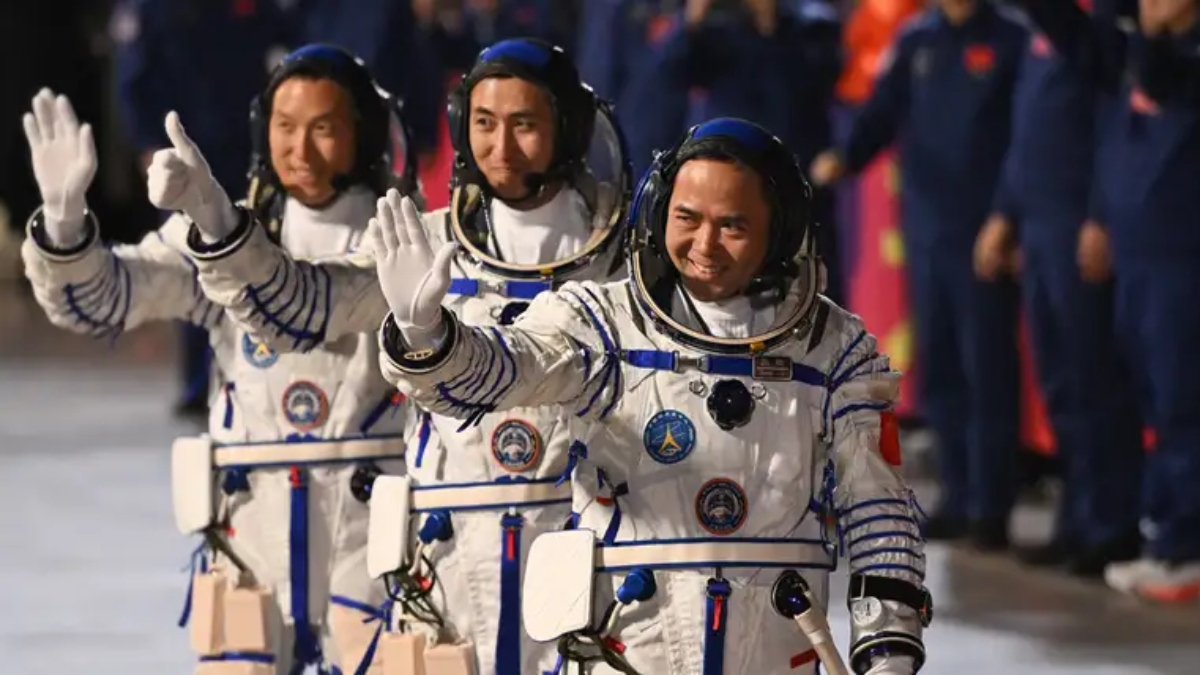China launched the Shenzhou-21 mission on Friday, carrying the country’s youngest astronaut along with four mice. The spacecraft will now be orbiting the Tiagong space station. It is pertinent to note that the Chinese space station , crewed by rotating teams of three astronauts, is the centrepiece of China’s multibillion-dollar space program.
The mission is part of Beijing’s endeavour to send astronauts to the moon by the end of the decade. The long-term plan is to build a lunar base, in a bid to rival the US and Russian space programs .
What made the Friday launch interesting is that the latest crew to Tiangong consists of first-time astronauts Zhang Hongzhang and Wu Fei, who, at 32, is China’s youngest astronaut sent to space. The team was led by Commander Zhang Lu, who spent time in space two years ago.
Apart from this, four mice are on board as well. This is the first time China has sent small mammals to the space station. The experiment is being conducted to study how weightlessness and confinement affect their behavioural patterns.
The space race between the US and China intensifies
According to Chinese news agency Xinhua, the “space mice” were selected from 300 candidates after more than 60 days of intensive training. Meanwhile, during their mission, the astronauts plan to conduct 27 experiments in fields such as biotechnology, space medicine and materials science.
The Friday launch comes as China plans to send a crewed mission to the moon by the end of the decade. “Our fixed goal of China landing a person on the moon by 2030 is firm,” said Zhang Jingbo, a spokesperson for the China Manned Space Agency.
It is important to note that Beijing had to build Tiangong after its exclusion from the International Space Station. China’s latest mission also came the same week SpaceX said it pitched America’s NASA a “simplified” plan to return US astronauts to the moon before China can complete its manned lunar mission.
Impact Shorts
More ShortsWith inputs from agencies.
)